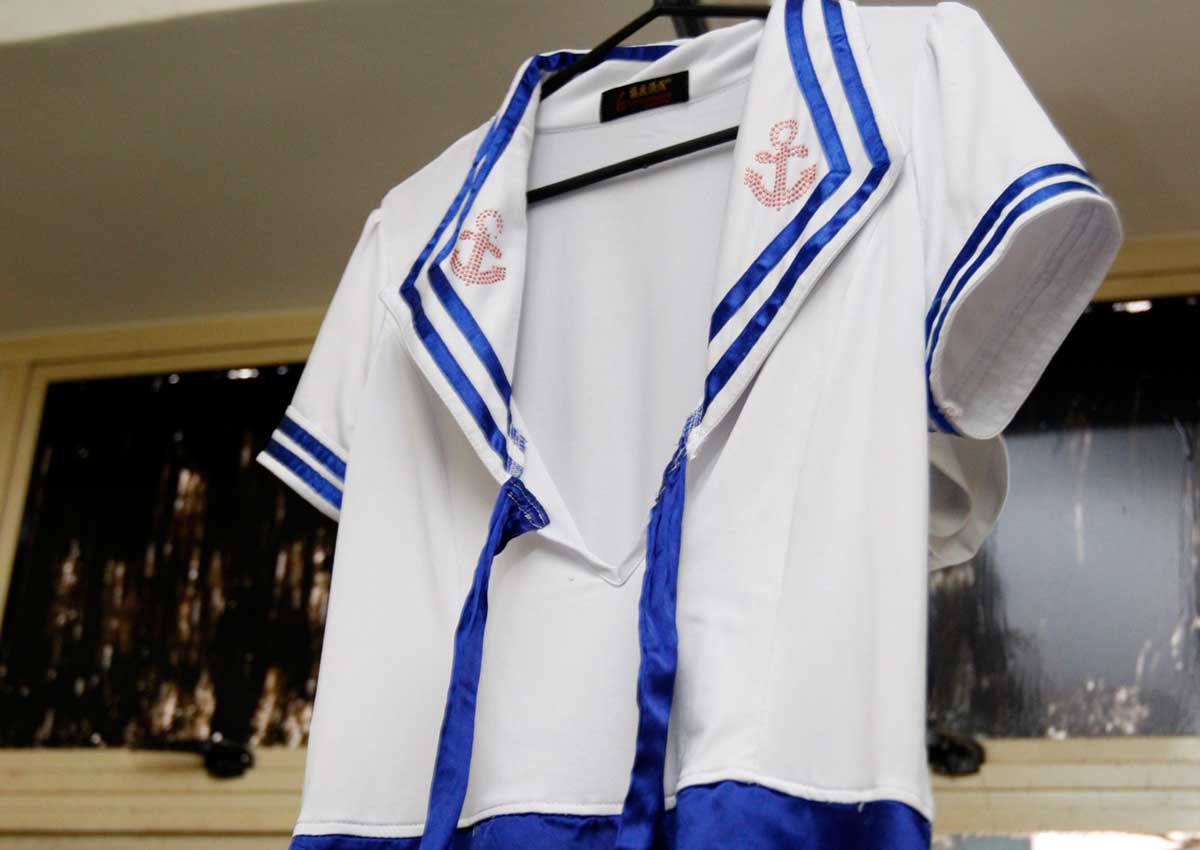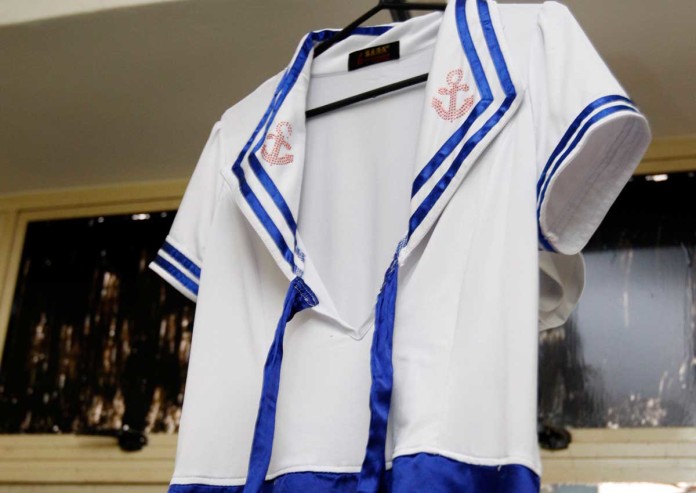TOKYO – Sexual violence targeting young women is a serious problem, with victims being forced into appearing in adult videos or falling prey to the so-called “high school girl business.”
Things get even worse for victims when these videos are released online, and many suffer in silence. This new series addresses the reality that these women face and support measures available to them. This is the second instalment of a series.
Read also: In Japan, young women are tricked and forced to appear in adult videos
A growing number of cases are emerging in which female high school students are being made to entertain male customers with massages and other services in an industry known as “JK business.” JK stands for joshi kosei, meaning female high school students.
The industry lures girls in by suggesting the work as a kind of casual part-time job, but the girls are at risk of sexual assault. Different kinds of JK businesses are appearing, including dates masked as “strolls.” Efforts at regulation have also begun.
Last summer, a now 17-year-old girl in the Tokai region who was then a second-year high school student, was approached by a man she met through a free messaging app. He told her, “I have a good part-time job for you,” and said some girls were earning tens of thousands of yen in a single day.
“I wanted money to buy clothes and other things,” she recalled.
The girl went to visit a shop. Upon entering a room, she saw a girl around her own age, and was told that male customers were observing the girl’s figure from the other side of a two-way mirror.
“It was so gross, and I got scared and thought, ‘No way I’m doing this,'” she said.
The girl was able to go home straight away. She has not returned, nor has she told her parents about the visit. But she says that even now, when she finds clothing or cosmetics that she wants, the thought of the part-time job crosses her mind.
JK businesses started in major urban areas five or six years ago. At many shops, girls in uniforms massage and lie next to male customers in private rooms, but services have diversified to include dating outside the shop and peeping rooms. Another characteristic is the easing of suspicions by using innocuous words such as “stroll” and “open house.”
There is also the danger of sexual assault. Metropolitan Police Department documents detail a case in 2015 in which a girl went out for a “stroll” with a male customer and was sexually assaulted at a karaoke box. There were also incidents of girls being stalked by men they met at a JK business shop or being taken into a customer’s home.
According to the MPD’s investigation, there were 132 known JK businesses in Tokyo in June 2015, but the number climbed to 174 in January this year. This does not include non-store operations where there is no physical shop and employees are dispatched to places designated by customers.
Why have JK businesses not tapered off? Kazuki Arai, the director of the Nagoya-based nonprofit organisation Zenkoku Kodomo Fukushi Center (All-Japan child welfare centre), said, “The shops cleverly lure [girls] with opportunities for casual work without explicitly advertising sexual services.”
“Many girls want to be accepted by others but don’t have confidence in themselves. In some cases being praised by customers is the reason they continue to work,” Arai said.
The nonprofit organisation has been continuing efforts every Saturday night near the nightlife district outside Nagoya Station to talk to girls who sit there for long periods or walk around the area, because many of these girls are lured into the JK business.
“We need to reach out a helping hand before something happens to them,” said Arai.
Moves to regulate businesses in the industry are also making progress. In July 2015, Aichi Prefecture’s revised ordinance of juvenile protection went into effect, and banned such actions as making girls under 18 work in the JK business or soliciting them for such a purpose. Punitive measures including imprisonment and fines were also established.
According to Aichi Prefecture, there were 57 known shops at the time the ordinance went into effect. This number later dropped to 32.
This May, an MPD expert panel put together a report aimed at tightening regulations in Tokyo as well.
In October 2015, 11 organisations submitted a petition to the Health, Labor and Welfare Ministry calling for tougher regulations, including the Tokyo-based nonprofit organisation Think Kids.
Its representative director, lawyer Keiji Goto said: “Issues such as girls having no place at home due to abuse or poverty are also background factors. Together with regulations, it is necessary to have mechanisms to support such girls.”
No such thing as ‘just’
To avoid falling victim to JK businesses, girls need to be aware of, and not be taken in by such deceptive lines as “It’s just taking a stroll,” “All you have to do is chat at a coffee shop,” or “It’s just having your picture taken.” Sometimes shops demand that girls provide sexual services after they start working.
Haruo Asai, a professor of child welfare at Rikkyo University, said: “Modern society is full of information on sex, but there are few opportunities to learn how to make judgments about it. The fact that businesses lay a variety of traps should be taught at home and in schools. It’s important to teach [girls] to protect themselves, and to be careful with their sexuality.”
Think Kids’ Goto said, “If there’s no one close at hand to talk with about your problems, we advise visiting the nearest police station or child guidance office.”






